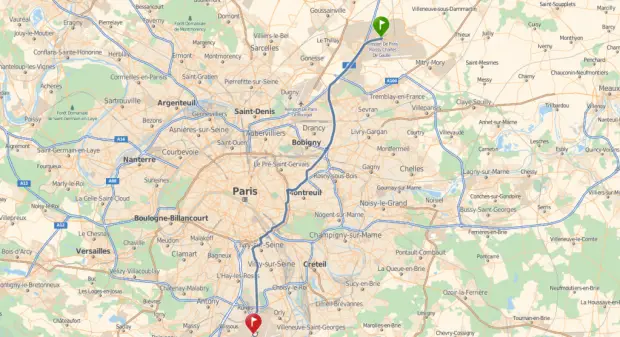Paris is a dream destination for many, but unfortunately, its popularity makes it a hotspot for scammers targeting tourists. These scams are carefully designed to catch visitors off guard, especially in busy areas.
Knowing what to watch out for can help you avoid these common traps and enjoy the city safely.
1) The Bonneteau (Three-Cup Monte) Scam
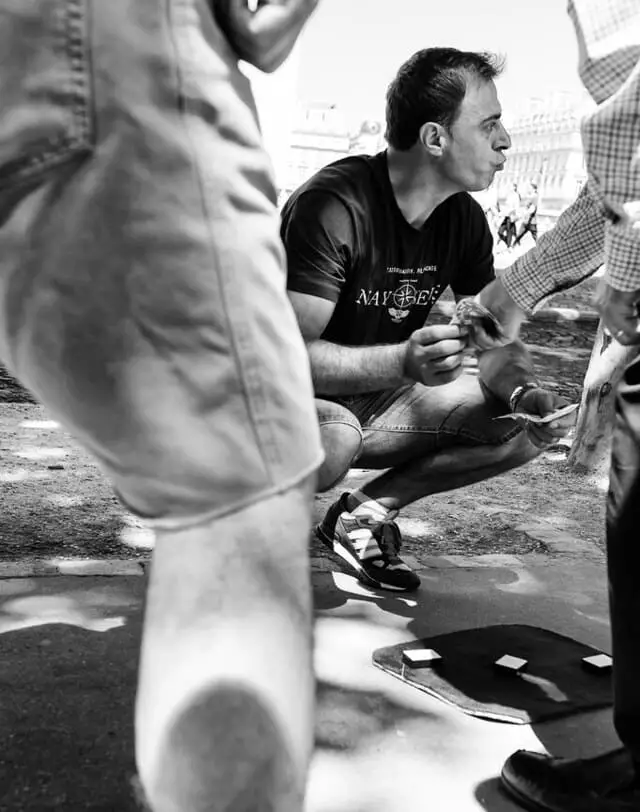
The Three-Cup Monte scam, also known as “Bonneteau,” is a game designed to make you think you can win, but it’s always rigged.
Scammers set up a small table or board on streets near Montmartre, the Seine, or other busy spots. The game involves moving three cups (or cards) around and asking you to guess where the hidden item is.
At first, it looks easy—one or two people in the crowd will “win” and collect cash.
What tourists don’t know is that these “winners” are part of the scam. They’re planted there to lure you into thinking you have a chance.
The person running the game uses sleight of hand to ensure the hidden item is never where you think.
Once you bet, you’ll lose, and if you try to argue, the group running the scam might intimidate you.
Even just watching can make you a target, as pickpockets often work nearby, preying on distracted tourists.
To avoid this scam, don’t stop to watch street games or gambling setups, no matter how harmless they seem. Keep moving, and avoid pulling out money in areas where these scams are happening.
2) The Friendship Bracelet Scam
This scam is a classic trap in Paris, especially in tourist-heavy areas like Sacré-Cœur.
Scammers target people who look distracted or unsure, often starting with a cheerful greeting or friendly conversation.
Without asking, they grab your wrist and begin tying a colorful string bracelet. It happens so quickly that many tourists don’t realize what’s going on until the bracelet is tied.
Once it’s on your wrist, they demand payment, often insisting it’s for their “work” or the “gift.”
Refusing to pay can lead to uncomfortable situations. Scammers might block your path, shout, or make a scene, intimidating some tourists into handing over cash just to avoid further trouble.
While the amounts requested might seem small (around €5-€20), giving in can encourage them to target others.
To avoid this scam, stay alert, especially in busy areas like Montmartre or the steps of Sacré-Cœur.
If someone approaches you with a bracelet, firmly say “no” and keep walking. If they manage to grab your wrist, quickly pull away. Don’t engage in conversation—it’s part of their tactic to distract and pressure you.
3) Pickpockets
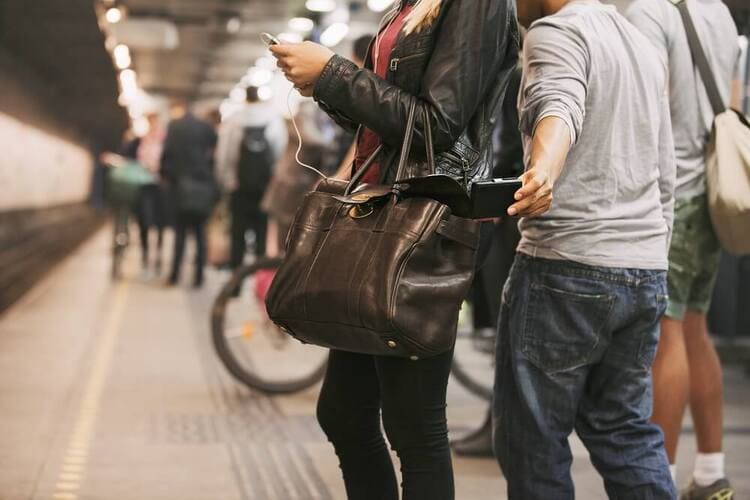
Pickpockets are a big problem in Paris, especially in crowded tourist spots like the metro (Lines 1 and 4), the Eiffel Tower, Montmartre, and major train stations.
They often work in teams—one distracts you while another grabs your wallet, phone, or bag.
Some common tricks include bumping into you, asking for directions, or pretending to drop something near you.
To stay safe, keep your bag zipped and in front of you, wear a crossbody bag, and never carry valuables in your back pocket.
Be extra careful when using ATMs or checking maps.
If someone gets too close or tries to get your attention in a strange way, stay alert and move away.
Pickpockets avoid people who are paying attention!
Read more: What Every Paris Tourist Needs to Know to Outsmart Pickpockets
4) The Petition Scam
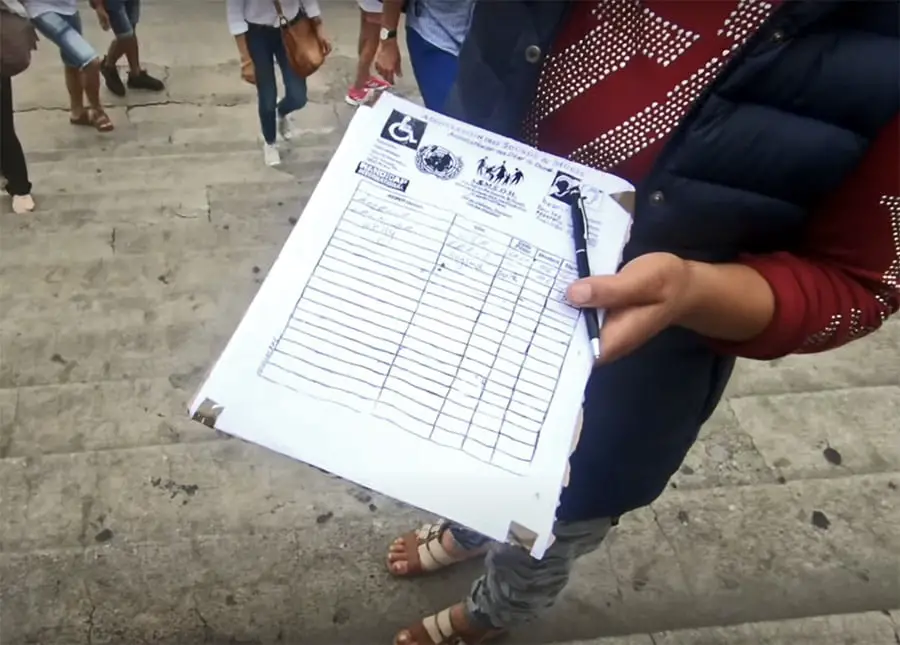
This scam often happens near major landmarks like the Eiffel Tower, Notre-Dame, or near the Louvre.
It’s usually a group of young people, often teens, holding clipboards and pretending to collect signatures for fake causes.
They might approach with urgency, saying it’s for a charity or an important petition. While you’re distracted signing, an accomplice may pickpocket you, or the person collecting signatures might demand a donation.
Sometimes, the group works together to corner tourists or create a sense of obligation.
For example, once you’ve signed, they might say, “It’s a €10 donation to support the cause,” making you feel guilty if you refuse.
In some cases, they become aggressive or block your path until you give them money.
To avoid falling victim, don’t stop or engage with anyone asking for signatures in tourist-heavy areas. Politely say, “No, thank you,” and keep walking.
Always keep your bag zipped and close to your body, and don’t get distracted by a group gathering around you. If you feel surrounded, move to a less crowded area and check your belongings.
5) The Gold Ring Scam
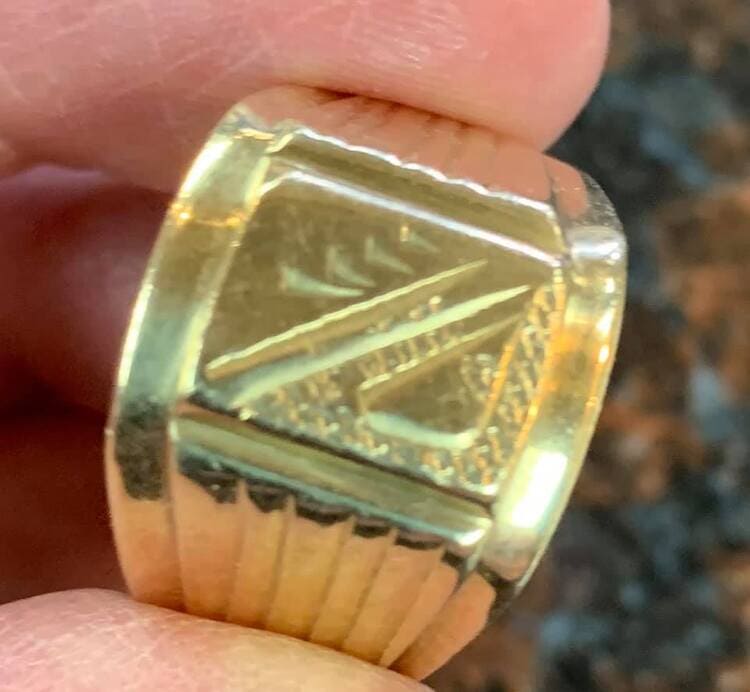
This scam typically happens in parks or near tourist sites. A scammer pretends to “find” a gold ring on the ground near you and quickly picks it up, acting as though they’ve stumbled upon something valuable.
They might hand it to you, claiming they’re giving it to you as a “gift” or insisting that it’s your lucky day.
Once you accept the ring, they’ll demand a “thank you” payment, often insisting on €10-€50.
Sometimes, they’ll claim the ring was theirs but offer to let you keep it—for a price. If you refuse to pay, they may become pushy, making you feel uncomfortable or guilty.
The ring itself is worthless, usually made of cheap metal.
The scam works because it plays on politeness—many tourists feel awkward refusing what seems like a friendly gesture.
To avoid this scam, never take anything a stranger hands you, especially if it seems out of the blue. If someone tries to give you a ring, firmly say “no” and walk away.
Don’t let them guilt or pressure you into paying for something you didn’t want in the first place.
6) Fake Taxi Rides
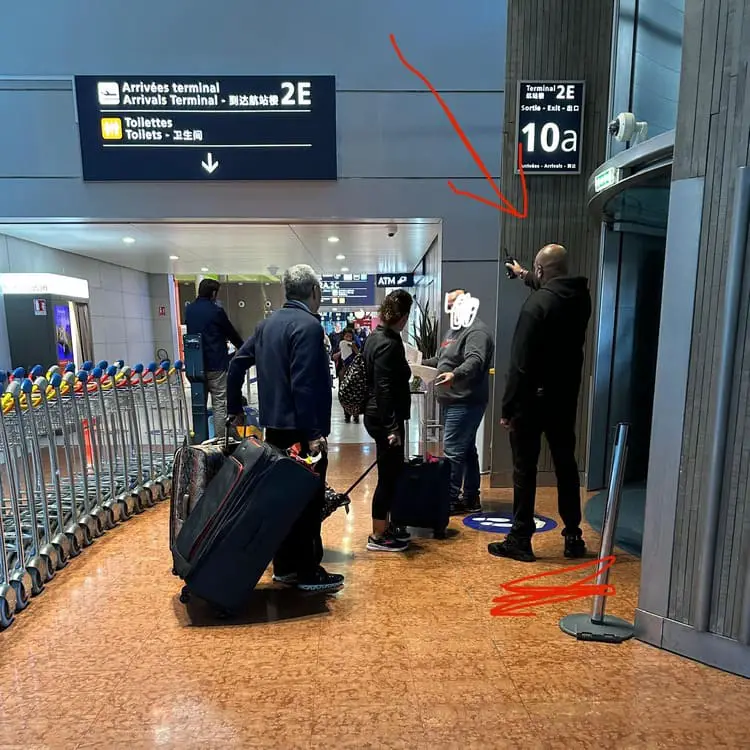
Unlicensed taxis and scammers often target tourists at major travel hubs like Charles de Gaulle (CDG) Airport and Gare du Nord.
These individuals may look “official,” wearing uniforms or holding clipboards, and will ask if you need a taxi. Some even use walkie-talkies to appear professional.
They lure unsuspecting travelers into overpriced rides, often charging €90-€120 for what should be a flat-rate trip of €56 to the Right Bank or €62 to the Left Bank.
These scammers rely on confusion. Many tourists don’t know the flat-rate system in Paris or where to find real taxis.
Once in the car, passengers either face inflated “metered” charges or unnecessary detours to increase the fare.
The experience can be stressful, especially after a long flight.
When exiting the airport, ignore anyone who approaches you about a taxi, even if they look official. Simply say “Non” and follow the signs for the official taxi rank. Legitimate taxis have the “Taxi Parisien” sign on their roof and visible meters inside.

At CDG and Orly airports, licensed taxis have flat rates to and from central Paris: €56 to the Right Bank and €62 to the Left Bank from CDG, and €41 to the Right Bank and €35 to the Left Bank from Orly.
If a driver claims otherwise or says their meter is “broken,” refuse the ride and find another.
Alternatively, apps like G7, Uber, or Bolt offer pre-booked rides with clear pricing. Sticking to these options helps avoid scams and ensures a safe, fair trip.

With a passion for travel and having visited over 50 countries, Dorian is eager to share his favorite spots and expert tips to help you explore Paris and France like a local.

